Industries


Business & General Administration
Business and General Administration cover a wide range of business functions in an organisation, including business management, office administrative, office support and other business support activities; from management to administrative support positions. Managerial staff will take the lead in various scope of work, such as strategic planning, policy development, budget control, project management, risk and compliance management, human resources management and development etc. Administrative support staff will work closely with internal and external stakeholders in the execution and implementation of the above policies/work. Having an effective administration is one of the key success factors in an organisation. The team acts as a link between departments, ensures that rules and regulations applied throughout the corporation, which in turn, facilitates efficient performance of departments. Right products/services can finally be provided to right customers at the right time. Under the rapid development in the new era, the application of information technology and work patterns in the workforce are kept on changing. Workforce in the Business & General Administration stream has to be well equipped to prepare for the new business operations, which enhances the sustainability of an organisation.
Related Occupations

Design, Advertising and Related Services
Design, Advertising and Related Services include the provision of specialised design activities such as fashion design, industrial design, interior design; and services covering publishing, advertising, promotion through interactive media as well as other related services such as entertainment and performing arts. Hong Kong has emerged as one of the regional design and creative capitals. According to the Hong Kong Census and Statistics Department, the value added by the design sector reached HK$ 4 247 million in 2016. In addition, the number of establishments and persons engaged in the design sector were 6,340 and 16,350 respectively in 2016. The demand for Hong Kong’s high-end design talents is expected to rise in light of recent Government pro-active policies and measures, flourishing Mainland market, etc. The advertising, public relations and marketing sector in Hong Kong has been growing with its number of employees doubled during 2001 to 2016. A lot of prominent multinational agencies set up their regional office in Hong Kong to cater the Asian market and capture the opportunities brought by the China’s economic upturn. With increasing popularity of mobile devices, digital and online advertising is occupying a major share of the advertising market. The sector is placing greater effort on delivering marketing messages to target customers via new media platforms. Social network advertisements, online video advertisements, banner advertisements are examples of digital and online advertising. The demand for advertising and public relations services in Hong Kong and China will continue to increase in the future as the market becomes more competitive and more mainland companies expand their business globally while foreign enterprises enter the mainland market. Publishing is the second largest component of the Cultural and Creative Industry in Hong Kong. Hong Kong is the publishing centre of the Asia Pacific region. Many international publishers and news agencies have set up offices in Hong Kong in view of its well established telecommunication network, freedom of trade and high degree of press freedom. Publishing has expanded from print media to digital media. Most of the newspapers and magazines have set up websites and publish online content to cater the public’s demand on receiving instant information via mobile devices. Some book publishing companies expanded their business scope into e-publishing which includes publishing of textbooks, reference books and trade books. Copyright trade is the focus of some companies, especially those having strong connections with China publishing sector and advantages in importing and distributing publications in the China market. In view of the constant demand of retrieving information and knowledge, in forms of printed materials or via electronic devices, publishing industry will grow steady in the coming years.
Related Occupations

Engineering and Environmental Related Services
Engineering and Environmental Related Services cover construction, architectural, surveying, electrical & mechanical services, engineering, manufacturing, and environmental related services. Hong Kong’s engineering and built environment related industries comprise the construction and non-construction services sectors, contribute around 7% Gross Domestic Product (GDP) in Hong Kong. The construction sector, which employs over 300,000 people in Hong Kong in 2017, is about the construction, maintenance and preservation of buildings such as residential, commercial, industrial, schools, hospitals etc. and infrastructural, including roads, highways, bridges, railways, airports, parks, water supply, power supply, sewage treatment etc. With the Government’s recent strong commitment to housing provision as well as massive investment in infrastructural projects, e.g., the Hong Kong section of the Guangzhou-Shenzhen-Hong Kong Express Rail Link, the Third Airport Runway, the Shatin to Central Link etc., it is foreseeable the construction sector will continue to prosper in the coming 20 years. The non-construction services sector like air-conditioning, fire services, electrical & mechanical services etc, which employs around 80,000 people, is another important one as the related services are essential and fundamental to nearly every aspect of livelihood in a modern metropolitan city such as Hong Kong. Owing to the continuing prosperity of both sectors, it is beyond doubt that career prospects for people working in related industries in Hong Kong are highly promising.
Related Occupations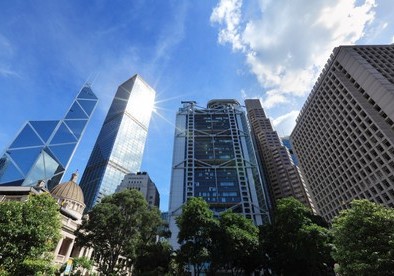
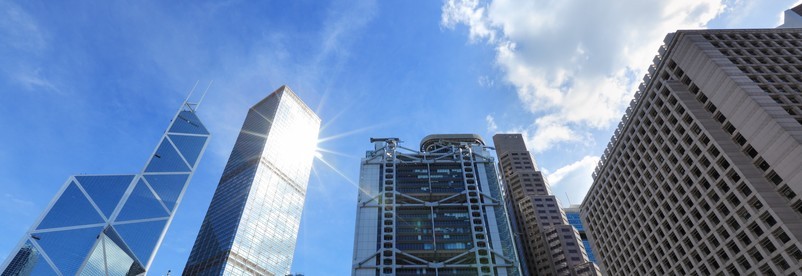
Financial and Legal Services
Financial and Legal Services cover banking, insurance, stock brokerage, asset management, accounting, auditing, bookkeeping and legal services. As a major international financial centre, Hong Kong is noted for its sound financial infrastructure, high regulatory standards and a trusted legal regime. Hong Kong is therefore recognised as a renowned asset management, banking and insurance hub resulting in a vast resource of financial and legal expertise. According to statistics, the financial and insurance sector accounted for 17.7% of Gross Domestic Product (GDP) in 2016. In addition, around 350 000 persons were engaged in the Financial Services Sector in 2017. For legal services, Hong Kong is the international law capital of Asia with a total workforce of over 25,000 personnel, including around 10,000 practising solicitors and barristers. There are around 900 local solicitor firms and more than 80 foreign law firms in Hong Kong. More than half of the global 100 law firms have a presence in Hong Kong. In order to cope with the challenges for Hong Kong to develop as an innovative powerhouse, financial technology (FinTech) and insurance technology (InsurTech) are the major driving force. Practitioners in Hong Kong are required to face challenges to expedite the FinTech / InsurTech development while at the same time addressing the compliance issues due to the tightened regulatory requirements. Notwithstanding this, Hong Kong, as an international financial centre with a robust financial system as well as a well-established legal system, could be fully capable of turning those challenges into opportunities.
Related Occupations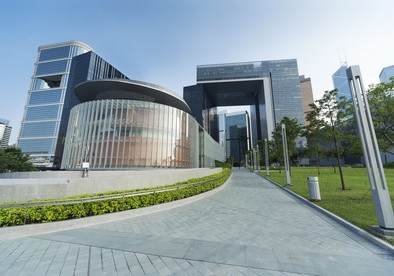
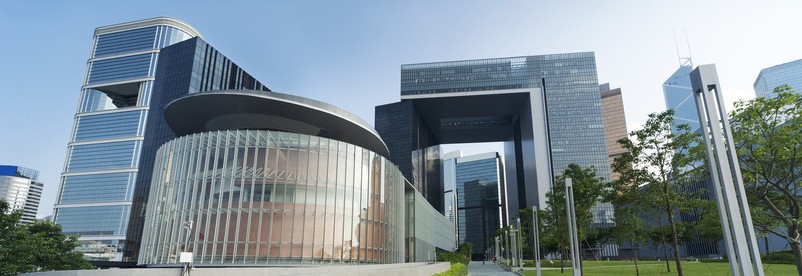
Government and Public Administration
Government and Public Administration cover the activities carried out by the executive arm and the judiciary of the Hong Kong SAR government. The Government and Public Administration sector in Hong Kong comprises the Chief Executive, the Financial Secretary, the Secretary for Justice, 12 bureaux, and almost 60 departments, responsible for the overall executive, economic / financial, and legal matters, as well as government policy formulation and implementation respectively. The bureaux are mainly staffed by administrative grade officers, responsible for assisting the formulation of government policy as well as steering the delivery of services by government departments to the public. Each government department is responsible for implementing government policy in a specific area, e.g., the Building Department is responsible for setting and enforcing safety, health and environmental standards for private buildings in Hong Kong; the Hong Kong Police Force is responsible for upholding the rule of law, maintaining law and order, preventing / detecting crime as well as safeguarding and protecting life and property; the Transport Department is responsible for ensuring that the transport system in Hong Kong is always safe, reliable, efficient, environmental friendly and satisfying. In 2018, the total number of employees in this sector is around 160,000.
Related Occupations

Hotel, Catering and Tourism
Hotel, Catering and Tourism cover accommodation services; food and beverage services; travel agency and reservation services; and convention and exhibition services. The tourism industry continues to be a major pillar industry accounting for around 5% of Hong Kong’s Gross Domestic Product (GDP), and employing more than 270,000 people in a wide spectrum of sectors including hotels, restaurants, travel agencies, airlines, theme parks and other tourism destinations. The Government has invested significantly on new attractions in recent years with the aim to enhance the drawing power of Hong Kong and to sustain the long-term development of the industry. The importance of the catering industry is vividly reflected in Hong Kong’s reputation as the “Gourmet Paradise”. Locals and overseas arrivals are provided with a wide array of sumptuous delicacies of varied cultural origins, and with a choice of upscale restaurants to traditional street-side food stalls. In complementing the development of the tourism industry, the Government has been strategically supporting the hotel sector in providing quality accommodation service to business and leisure arrivals. As such, it is discernable that there is a positive outlook of the tourism, catering and hotel industries and the career prospects for new entrants are highly promising.
Related Occupations

Import/Export/Wholesale and Retail Trades
Import/Export/Wholesale and Retail Trades comprise import of goods and services for domestic wholesaling or re-export; domestic wholesale trade; and resale of new and used goods. Hong Kong’s Import/Export/Wholesale industries contribute around 19% Gross Domestic Product (GDP) with over 500,000 employees in Hong Kong. According to the statistics, Hong Kong’s merchandise export and import registered a notable growth of 8% and 8.7% in 2017 respectively. The global economy continues its relatively fast recovery and the momentum is expected to carry over. In addition, it creates fresh demands and business opportunities with the support of various national strategic plans, e.g. the Mainland and Hong Kong Closer Economic Partnership Arrangement (CEPA), which provides a window of opportunities for Hong Kong business to gain greater access to the Mainland Market, the “Belt and Road Initiative” promotes closer economic cooperation/connectivity among countries and drive the growth of international trade and the “Guangdong-Hong-Kong-Macao Bay Area” would become one of the world’s major city clusters and definitely bring golden opportunities and prospects for Guangdong, Hong Kong and Macao. Hong Kong’s Retail trade contributes around 3.5% GDP with over 270,000 employees in Hong Kong. The recent recovery in Hong Kong’s retail sector is set to continue, along with a continuous improvement in the number of tourists visiting the city. According to the Tourism Board, more than 60 million visitors are expected to pour into Hong Kong in 2018, marking a 3.6% rise over last year. Visitors from mainland China comprised 76% of the overall tourists. Apart from the bigger uptick in tourist arrivals, increasing local purchasing power is expected, thanks to favourable job and income conditions. In addition, large scale infrastructure development projects, e.g. the Guangzhou-Shenzhen-Hong Kong Express Rail Link, Hong Kong-Zhuhai-Macao Bridge and the three-runway system project at the Hong Kong International Airport, will also improve the traffic, provide fast and convenient means for tourists to visit Hong Kong. Hong Kong retailers would continue to benefit from the top-notch infrastructure network and the strong economic climate.
Related Occupations

Information and Communications Technology
Information and Communications Technology (ICT) cover information systems, computer science, software engineering, information technology, telecommunications, multimedia and entertainment technology. According to the Report of the Census and Statistics Department (2017 Edition), the value added of the ICT sector amounted to $132 billion, representing 5.7% of the Gross Domestic Product (GDP) at basic prices. In terms of employment size, some 130,700 persons were engaged in the ICT sector, accounting for 3.5 % of the total employment. In view of the recent rapid development in ICT technologies such as Artificial Intelligence, Data Science, Blockchain, Smart City and FinTech, both the government and the private sectors have devoted a great deal of effort to accelerate their applications in various business sectors. In addition, with the deployment of the 5G communication technology in the coming years, new applications will be developed by various ICT service providers to meet expanded customer expectation. Together with the demand of cybersecurity professionals to cope with the requirement for data protection and privacy, the experienced IT professionals are still in demand in coming years.
Related Occupations

Medical and Health Services
Medical and Health Services include activities of hospitals, other medical health institutions and nursing homes for the elderly; medical consultation and treatment; and dental practice activities. The Government has identified medical services as one of the selected industries which enjoys advantages for further development. Its value added was over $42 billion in 2016 (or 1.7% of Gross Domestic Product (GDP)), increased by more than 8% compared with 2015. Currently, this sector employs over 90 000 people, of which over 14,000 doctors and 40,000 registered nurses. To respond to the population growth and demographic changes, particularly the challenges of our aging population, the Government has set aside $300 billion, as an initial provision, to support the second 10-year hospital development plan, improve clinical facilities of the Department of Health and upgrade healthcare teaching facilities. To further alleviate the manpower shortage of healthcare professions, the Government has committed that the Hospital Authority will have adequate resources to employ all local medical graduates. It is anticipated that more than 2,000 medical graduates would come on stream in the next five years. In addition, the Government is in discussions with the University Grants Committee to increase publicly funded training places for doctors, dentists, nurses and allied health professionals in the coming three years. With the Government’s continued support, coupled with the growing demand for medical and healthcare services, the industry is expected to be a bright spot in the coming years.
Related Occupations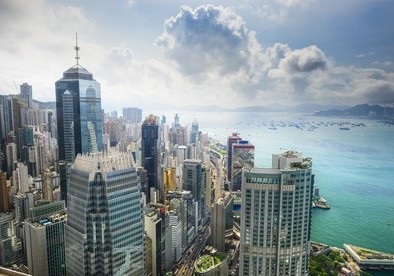

Real Estate Services
Real Estate Services cover real estate development; property management and maintenance; estate agency; and estate surveying, valuation and consultancy sectors. At present, there are around 13,400 establishments in the real estate sector, engaging over 114,000 persons. The total receipts of the real estate sector as a whole amounted to $183.1 billion, generating value added of $126.6 billion. The real estate sector in Hong Kong is predominated by the real estate development and leasing sector in terms of business receipts. While the real estate management and maintenance sector is the second largest component industry in terms of business receipt. As the real estate management and maintenance is a relatively labour-intensive economic activity, over 79,000 persons are engaged in this component sector, representing 69.3% of the total employment of the real estate sector. In Hong Kong, the real estate brokerage and agency sector accounted for 7.9% and 7.3% of the total receipts and overall value added respectively of the real estate sector. Based on the Estate Agent Authority’s statistics in 2018, a total of 39,000 persons hold a valid salesperson’s licence or estate agent’s licence (Individual). For the surveying sector, the General Practice (GP) Surveyor is also commonly known as Valuation Surveyor and Estate Surveyor. Apart from their work in the private practice, GP Surveyors are also employed by the Government in various departments such as the Lands Department, Rating and Valuation Department, Government Property Agency and Housing Department to handle works including land disposal and resumption, sales, letting and management of Government properties, acquisition and leasing of properties for Government use, rating, taxation, and management of public housing, etc. With the continuous increase in the future housing supply and property investment by local, China and overseas property developers, there will be an increasing demand in manpower of the four respective sectors.
Related Occupations

Social, Education and Personal Services
Social, Education and Personal Services cover social work activities; education and training; personal services such as beauty care, hairdressing; and sports and recreational activities. This big sector employs more than 500,000 people. Though Hong Kong is a developed economy, there are challenges like an ageing population and juvenile issues. There is always a need for social services. Currently, there are over 22,000 registered social workers in Hong Kong. Their major role is to provide services for individuals across a wide range of settings, like educational, medical, and rehabilitation, etc. On the other hand, Hong Kong has a well-established education system. From kindergartens to higher education institutes, together with vocational and professional education and training (VPET) and education for teachers, over 76,000 teachers are offering various services to address different needs. On the other hand, a strong demand for sports and recreation professionals has been constituted by the rapid development of the sports and recreation industry in Hong Kong. This creates opportunities for those who wish to pursue their careers in the core areas of sports coaching, sports therapy, or recreation management.
Related Occupations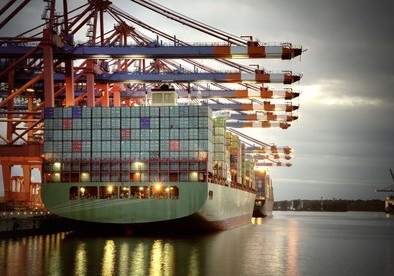
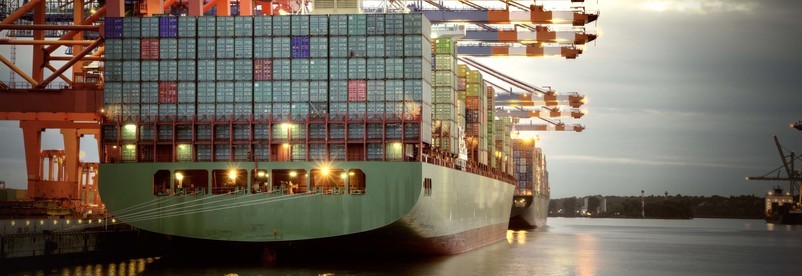
Transport and Logistics
Transport and Logistics include industries within passenger transports; freight forwarding; warehousing and storage; and postal and courier services. The transport and logistics industry, as one of the prominent service sectors of Hong Kong, is unique and superior in the world in terms of its international business orientation, depth of service, expertise and professionalism. Hong Kong always maintains its competitive edge in both of the international air freight traffic, and throughput of its container port. On the other hand, we have a very sophisticated passenger transportation system with railways as the backbone. In the wake of the fast growing passenger transportation network in Hong Kong, the success and efficiency of Hong Kong’s MTR system has turned it into a model for other underground systems across the globe. The infrastructure projects between Hong Kong and Pearl River Delta Region such as Hongkong-zhuhai-Macao Bridge and Guangzhou-Shenzhen-Hong Kong Express Rail Link, the connectivity brings by these projects will benefit Hong Kong from several aspects such as strengthening Hong Kong’s position as the logistics centre, perfecting the regional transport network and the most important is encouraging deeper economic integration in the Greater Bay Area. In view of rapid development of Greater Bay Area and China cross-border e-commerce, many transport and logistics companies are actively looking for young talents to join the industry especially in these new areas. After all, logistics and trade is one of the four pillars of Hong Kong’s economy.
Related Occupations